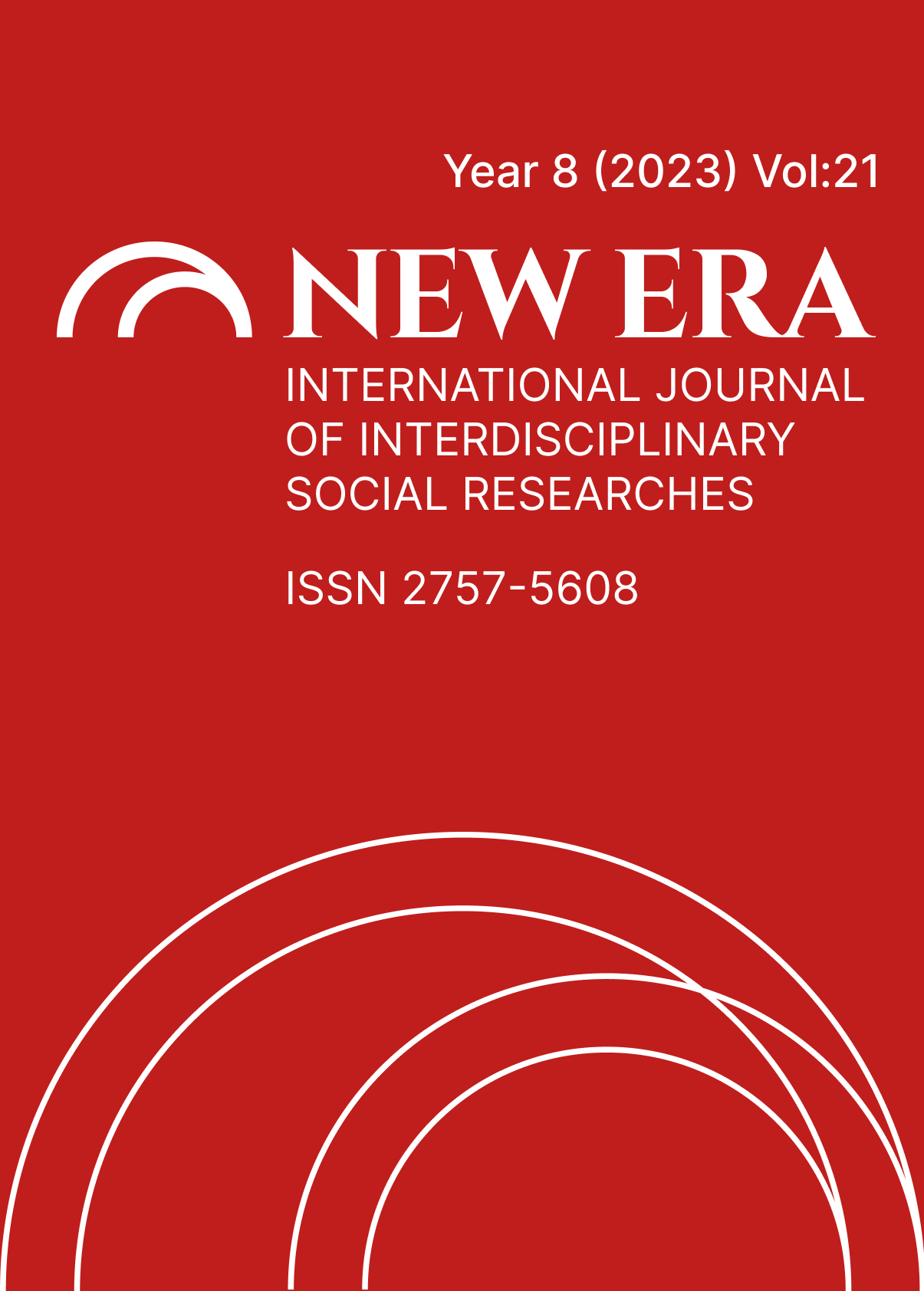THE SUPERIORITY OF MAN OVER OTHER BEINGS IN THE SIGHT OF GOD
DOI:
https://doi.org/10.5281/zenodo.10421289Keywords:
: Relevation,transport, islamic,universe,chaos,overbearing,belief,action,right,superstitionAbstract
In this study, the value that Allah gives to human beings and why human beings are superior to other living things are tried to be explained with the verses in the Holy Qur'an. What the Qur'an thinks about this issue, the purpose of the creation of human beings and the responsibility of human beings have been tried to be explained. First of all, the importance of reason is emphasized and the effort of man to find the truth with the reason and thinking abilities that Allah has given to man is expressed. Again, how the Holy Qur'an looks at this issue, that is, its point of view, has been mentioned and the verses have been emphasized. At the same time, in this study, the great importance of the importance that Islam attaches to reason has been mentioned, and the importance has been given to the fact that Islam rejects bigotry and that people should distinguish right from wrong by questioning, that is, by thinking. And it is stated that it is not possible for the intellect to find everything on its own, so it is better to use the intellect in the light of transmission. In other words, it has been mentioned that the intellect will enlighten people better in the light of the Holy Qur'an, in the light of transmission, and again, it has been tried to be explained that the combination of revelation and intellect is more appropriate because Allah sends prophets. In short, reason enlightens people better in the light of revelation and transmission, and the combination of reason with knowledge is also mentioned. It is also mentioned that it cannot be only with religion, that religion can be combined with reason, that human beings have made new developments in technology with their reason, and that human beings should use their reason for good, and that the order of the universe will be in peace and tranquility if they use it for the good of humanity.
References
Ardoğan, Recep(ed.). Günümüz Kelam Problemleri, İstanbul: Klm yayınları, 2018.
Ahmed b. Hanbel, Ebu Abdullah Ahmed b. Muhammed Şeybani. (1992). Müsned. İstanbul: Çağrı Yay.
Altıntaş, Ramazan, İtikadi Açıdan İbnu’l-Cevzi’nin Tasavvufu Eleştirisi ,İ. F. Kelam Anabilim Dalı 3. Eğitim-Öğretim Meseleleri Koordinasyon Toplantısı Kelam Tasavvuf İlişkisi Sempozyumu, tebliğ metni.
İşlevsel Akıl, İstanbul 2003.
Attas, M. Nakib, Modern Çağ ve İslami Düşünüşün Problemleri, çev. M. Erol Kılıç, İstanbul 1989.
Baç, Murat, Kaos Kelam Hijyen Şiddet. İstanbul: Yeni İnsan Yayınevi, Nisan 2012.
Bardakcı, Sefa. Ebu’l Muin en-Nesefi’de Allah İnsan İlişkisi(1.Baskı). Konya: Adal Ofset, 2010
Bardakçı, Sefa. El-Kifaye fi’l-Hidaye (1. Baskı). Ankara: SAGE Matbaacılık Yayıncılık, 2018.
Kur’ân Yolu. Erişim 17 Kasım 2023. https://kuran.diyanet.gov.tr
Kur’ân-ı Kerîm Meâli. çev. Halil Altuntaş - Muzaffer Şahin. Ankara: Diyanet İşleri Başkanlığı Yayınları, 3. Basım, 2009. Kur’an Mesajı: Meal-Tefsir. çev. Muhammed Esed, Türkçeye çev. Cahit Koytak - Ahmet Ertürk. Ankara: İşaret Yayınları, 2002.
Mehmet Taşdelen, ‘Kelamda Aklın Fonksiyonel Değeri’Gaziantep İslam Bilim Ve Teknoloji Üniversitesi İslami İlimler Fakültesi 4/1, Mayıs 2023.
Topaloğlu, Bekir. Çelebi, İlyas. Kelam Terimleri Sözlüğü(7. Baskı) Ankara: TDV Yayın Matbaacılık, 2020.
Turhan, Kasım, Kelam Ve Felsefe Açısından İnsan Fiilleri, İstanbul M.Ü Vakfı Yayınları, 6.basım, 2020
Yavuz, Sercan- Çakan, Barış. Din ve İnsan Sempozyumu, “dinveinsan.ogu.edu.tr”. Erişim 25 Kasım 2023, www. dinveinsan.ogu.edu.tr.
www.yeniakit.com.tr Erişim 25 Kasım 2023.
www.dergipark.org.tr Erişim 25 Kasım 2023.
DİB, Diyanet İşleri Başkanlığı. Erişim 25 Kasım 2023. diyanetnamazvakti.com.
Downloads
Published
How to Cite
Issue
Section
License
Copyright (c) 2023 NEW ERA INTERNATIONAL JOURNAL OF INTERDISCIPLINARY SOCIAL RESEARCHES

This work is licensed under a Creative Commons Attribution-NonCommercial 4.0 International License.


